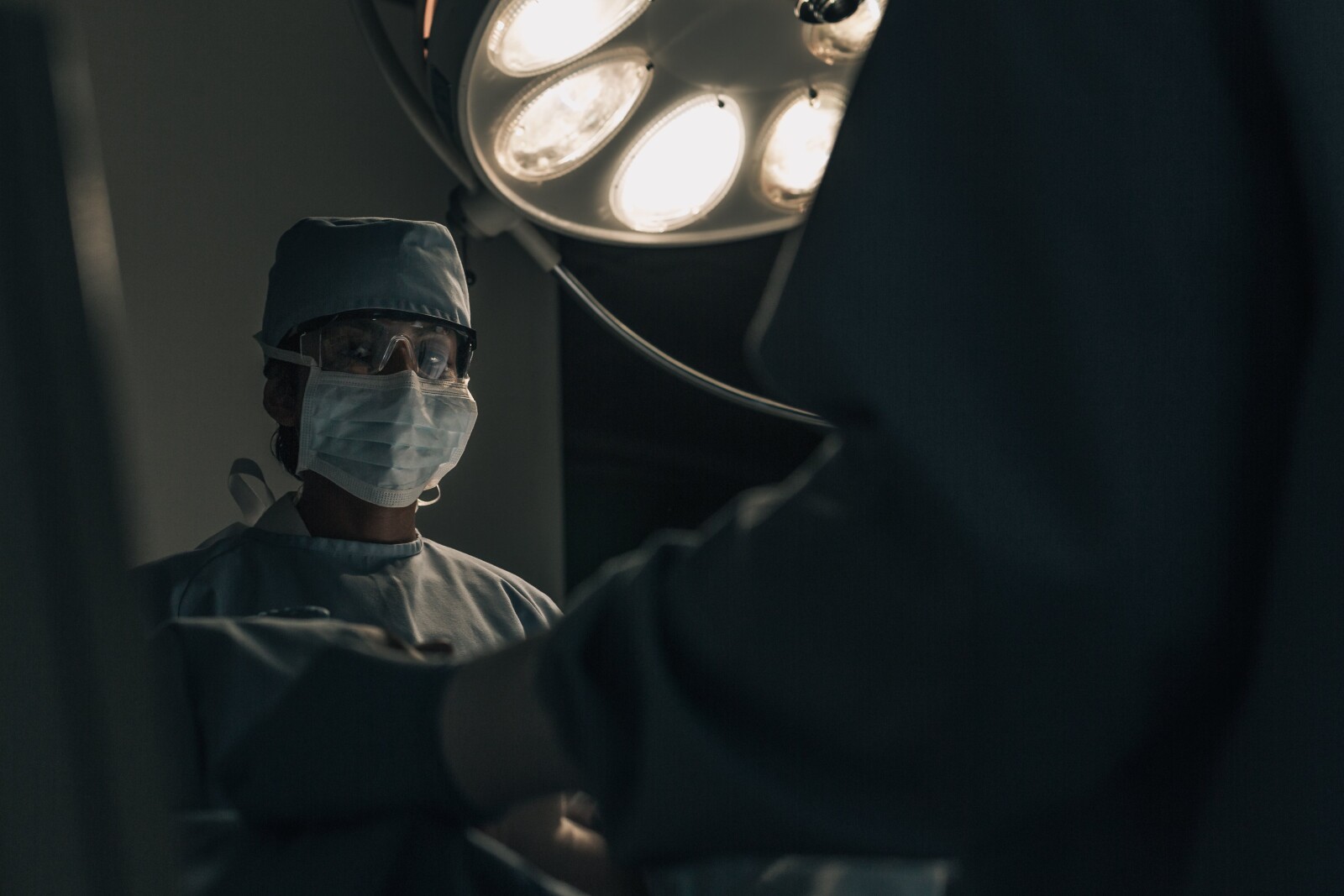Hernia Mesh Complications
Just as a patch might fail to hold together a torn fabric, hernia mesh, a common solution for hernia repair, can lead to various complications in patients. From persistent pain to severe infection, hernia recurrence, and even bowel obstruction, the fallout can be distressing. This article aims to shed light on these complications, their diagnosis, and available treatments, arming patients and healthcare providers with vital information for better decision-making in hernia repair.

Key Takeaways
- Comprehensive preoperative planning and meticulous operative techniques are crucial in preventing hernia mesh complications.
- Postoperative care should involve vigilant monitoring for signs of complications, such as persistent pain, infections, hernia recurrence, adhesion, and bowel obstruction.
- Patient testimonials provide valuable insights into the diverse range of symptoms and can inform strategies for prevention and treatment.
- Long-term effects of hernia mesh complications can include severe and persistent pain, further surgeries, disability, and complications arising from mesh breakdown over time. Ongoing medical monitoring is necessary to mitigate long-term risks.
Understanding Hernia Mesh Complications
In the realm of medical complications arising from surgical procedures, understanding hernia mesh complications, which include persistent pain, infection, and hernia recurrence among others, is crucial for effective diagnosis and treatment. Preventing complications begins with comprehensive preoperative planning and meticulous operative techniques. It further extends to postoperative care, which should involve vigilant monitoring for signs of complications. Patient testimonials provide invaluable insights into the diverse range of symptoms and the unique patient experiences that are associated with hernia mesh complications. These firsthand accounts can significantly contribute to medical understanding of these complications, thereby informing more effective strategies for preventing, diagnosing, and treating these potentially life-altering complications. In this regard, the role of patient testimonials in understanding and managing hernia mesh complications cannot be overstated.
The Common Complications Linked to Hernia Mesh
There are several common complications associated with hernia mesh, including persistent pain, infection, hernia recurrence, and adhesion, among others. Understanding treatment options is crucial in managing post-surgery complications. For instance, minor infections can be controlled with antibiotics, while persistent pain might require medication or alternative therapies. However, severe complications such as adhesion or hernia recurrence may necessitate additional surgeries. In such cases, the mesh might need to be removed or replaced. Bowel obstruction, another potential complication, could also require surgical intervention. It is imperative for patients and healthcare providers to be vigilant in monitoring for these complications post-surgery. Timely identification and appropriate management can significantly improve patient outcomes following hernia mesh surgeries.
An Overview of Infection Complications
Approximately 25% of patients who undergo hernia mesh surgeries may experience infection complications, making it a significant concern in postoperative care. Infection prevention strategies include meticulous surgical technique, postoperative wound care, and prophylactic antibiotics. Despite these efforts, infections can occur along the suture site, around the mesh, or spread to other body parts. Symptoms often include inflammation, fever, and flu-like symptoms. Deep, chronic infections may necessitate mesh removal. Patient testimonials often highlight the physical and emotional impact of these complications, with many reporting debilitating pain, recurrent hospital visits, and a decreased quality of life. Hence, it is crucial to identify and manage infection complications promptly to mitigate their adverse effects.
Long-Term Effects of Hernia Mesh Complications
Understanding the potential long-term effects of hernia mesh complications requires a comprehensive review of patients' postoperative experiences, medical records, and ongoing research in the field. Patient testimonials often highlight the severe and persistent pain, while medical records show issues such as infection, adhesion, and bowel obstruction. These complications may lead to significant long-term consequences including hernia recurrence, further surgeries, and even disability. The mesh can breakdown over time, losing its elasticity and possibly leading to further complications. Current research is focusing on improving mesh materials and surgical techniques to mitigate these risks. However, the long-term consequences of hernia mesh complications remain a critical concern, underscoring the need for ongoing medical monitoring post-surgery.
Identifying Other Hernia Mesh Complications
Remarkably, in addition to the commonly known complications associated with hernia mesh, there are other less prevalent but equally significant issues that can arise. Bowel perforation, mesh migration, and mesh rejection are examples of such complications. Patient testimonials often reveal a recurrence of the hernia even after mesh surgery, raising questions about the effectiveness of the mesh. Some patients also report difficulty in identifying if the hernia mesh has ripped or failed. The common symptoms include prolonged, stabbing pain and swelling. Diagnosing these complications usually involves X-rays, CT scans, and blood tests. While minor complications can be treated with medication, serious ones may necessitate additional surgery and mesh removal. These complications underscore the importance of thorough pre-surgical counseling.
Diagnosis Techniques for Hernia Mesh Complications
While hernia mesh complications can present through various symptoms, the formal diagnosis often relies on specific techniques such as X-rays, CT scans, and blood tests. These diagnosing techniques help to identify the extent of the complication, the exact location of the mesh, and the presence of any infection or other abnormalities. X-rays can show the position and condition of the mesh while CT scans offer a more detailed image of the surrounding tissues. Blood tests can indicate the presence of an ongoing infection or inflammation. Once the diagnosis is confirmed, the physician can discuss treatment options. These might include non-surgical methods like medication for minor complications, or more invasive procedures such as surgery for severe issues or mesh removal.
Treatment Options for Hernia Mesh Complications
As soon as hernia mesh complications are diagnosed, a range of treatment options become available, each tailored to the severity and type of the complication. Complications management may involve medication, surgery, or alternative treatments. For infections or minor complications, antibiotics and pain management medication may suffice. In cases of mesh rejection, adhesion, or recurrence of hernia, surgical intervention may be required. This could involve the removal or replacement of the mesh, using either laparoscopic or open repair methods. Alternative treatments for managing pain and aiding recovery, such as physical therapy, may also be recommended. It is crucial to understand that each patient's situation is unique, and individualized treatment plans are designed to ensure the best possible outcomes.
The Role of Surgery in Hernia Mesh Complications
Surgery plays a critical role in the management of hernia mesh complications, and depending on the severity of the situation, it can involve either the removal or replacement of the problematic mesh. The role of mesh removal surgery is particularly paramount when complications such as infections, adhesions, or obstructions occur. This procedure can alleviate pain and reduce the risk of further complications. On the other hand, mesh replacement surgery might be considered if the original mesh has failed or caused a hernia recurrence. However, it's important to note that surgery is not the only option. Alternative treatments for hernia mesh complications, including medication and lifestyle changes, may be viable options for patients with less severe complications or those unfit for surgery.
How to Recognize Symptoms of Hernia Mesh Failure
Recognizing the symptoms of hernia mesh failure is crucial for early diagnosis and prompt treatment of this significant medical complication. Patients may experience persistent pain, swelling, or tenderness near the surgical site, signs of hernia mesh complications. Fever, nausea, or bowel obstruction could indicate an infection or adhesion associated with hernia mesh failure. If the hernia reappears, this could signal a failure of the mesh. It's essential to consult with a healthcare professional if any of these symptoms occur. The management of hernia mesh failure involves various strategies, from medication for minor complications to surgical intervention for severe cases. Understanding these symptoms allows patients and doctors to decide how to manage hernia mesh failure effectively.
The Impact of Hernia Mesh Complications on Quality of Life
The physical and emotional toll of hernia mesh complications can significantly diminish a patient's quality of life. Such complications can have a profound impact on mental health, with patients often experiencing anxiety and depression due to persistent pain, recurrent health issues, and uncertainty about their future health.
Moreover, the financial burden associated with these complications can be overwhelming. The cost of additional surgeries, medications, doctor visits, and physical therapy can quickly mount. For many, this is compounded by lost wages from time off work for recovery. This financial stress can further exacerbate mental health struggles, creating a challenging cycle. Thus, hernia mesh complications can have extensive and lasting effects on a patient's overall quality of life.
Legal Actions Related to Hernia Mesh Complications
Over the past decade, and as a result of the growing number of hernia mesh complications, numerous legal actions have been instituted against manufacturers of these medical devices. These lawsuits primarily cite negligence, and failure to adequately warn about the risk factors associated with hernia mesh. Plaintiffs argue that manufacturers failed to conduct sufficient testing and knowingly marketed a perilous device. The legal actions are typically premised on claims such as product liability, personal injury, and wrongful death. The compensation sought after includes but is not limited to medical expenses, lost wages, and damages for pain and suffering. The ongoing legal battles underscore the critical need for increased transparency and accountability in the medical device industry.
Preventive Measures to Avoid Hernia Mesh Complications
While we cannot completely eliminate the risk of hernia mesh complications, we can certainly take proactive steps to minimize their likelihood and mitigate their impact. Preventive measures start with identifying risk factors such as obesity, smoking, and previous surgical complications. Patients should strive for optimal health pre-surgery, including maintaining a healthy weight and refraining from tobacco use. It is also crucial to choose an experienced surgeon who can appropriately select and place the mesh, reducing potential complications. Postoperatively, following doctor's instructions regarding activity level and wound care is vital. Regular follow-ups can help detect early signs of complications. Thus, by understanding and addressing risk factors, we can significantly reduce the incidence of hernia mesh complications.
Hernia Mesh Complications: Patients’ Real-life Experiences
In a compelling testament to the challenges of living with hernia mesh complications, numerous patients have shared their real-life experiences, shedding light on the physical and emotional toll of this medical condition. Their testimonials reveal a spectrum of struggles, from persistent pain and discomfort to recurrent infections and multiple surgeries. For many, the journey of complications management is fraught with frustration, as they navigate the healthcare system in search of effective relief. The psychological burden is equally significant, with feelings of anxiety and depression commonly reported. These patient experiences underscore the need for comprehensive care strategies to minimize the severity of complications, maintain quality of life, and provide essential emotional support.
Role of Medical Professionals in Handling Hernia Mesh Complications
The role of medical professionals in handling hernia mesh complications is pivotal, and their expertise can significantly impact a patient's recovery and quality of life. They are responsible for diagnosing issues, determining appropriate treatment strategies, and providing comprehensive patient care. This includes patient advocacy, ensuring the patient's needs and concerns are at the forefront of all decisions. However, medical negligence can contribute to hernia mesh complications. This may include failure to adequately inform the patient of potential risks, improper surgical techniques, or lack of post-operative care. It's crucial for medical professionals to continuously improve their knowledge and skills to prevent such instances. Their role extends beyond treatment, playing a significant part in prevention and management of hernia mesh complications.
Understanding the Risk Factors for Hernia Mesh Complications
With a focus on comprehending the risk factors for hernia mesh complications, it is imperative to consider both patient-specific and procedure-specific variables. Certain factors, like the patient's age, overall health and lifestyle habits, can influence the risk of complications. Procedure-specific factors include the type of hernia, the surgical technique used, and the type of mesh implanted. Understanding these risk factors is critical in preventing complications. To do this, healthcare providers must conduct thorough preoperative evaluations and carefully select suitable patients for mesh repair. They should also consider alternative treatments for those at high risk. It's important to remember that while hernia mesh can provide substantial benefits, they are not without potential drawbacks.
Frequently Asked Questions
What Are Some of the Psychological Impacts of Dealing With Hernia Mesh Complications?
Dealing with medical complications can significantly impact an individual's mental health. In the case of mesh anxiety, patients may experience heightened stress or anxiety related to the fear of complications or failure of the mesh. This can lead to depression and reduced quality of life. However, psychological resilience plays a key role in coping with these challenges, helping individuals to adapt, recover and improve their overall wellbeing despite the adversity they face.
How Can Family Members Support a Loved One Who Is Experiencing Hernia Mesh Complications?
Family members can play a crucial role in supporting a loved one facing health challenges. As the adage goes, "a problem shared is a problem halved." Caregiver strategies may encompass practical assistance with medical appointments and treatment adherence. However, emotional support, including active listening, empathy, and reassurance, is equally essential. These combined efforts can significantly alleviate the individual's stress, foster resilience, and contribute to a more positive health outcome.
Are There Any Lifestyle Modifications That Can Help Manage Hernia Mesh Complications?
Lifestyle modifications can indeed aid in managing postoperative complications. Dietary changes, such as increasing fiber intake and maintaining hydration, can help prevent constipation and straining, which could aggravate the condition. Physical rehabilitation, including gentle exercises and strength training under professional guidance, can help regain abdominal strength and reduce discomfort. However, these strategies should be tailored to individual needs and medical advice should be sought for personalized care.
What Is the Process for Filing a Lawsuit Related to Hernia Mesh Complications?
To initiate a lawsuit, it's essential to start with thorough Lawsuit Preparation. This involves gathering all relevant medical records, hospital bills, and documentation of your symptoms. Next, seeking professional Legal Representation ensures that your case is effectively presented. A lawyer with experience in medical malpractice will guide you through the legal process, from filing the initial claim to potential settlement negotiations or trial. The litigation process may be lengthy, but proper preparation and representation can help achieve a just outcome.
Are There Any Alternative Treatments to Hernia Mesh for Hernia Repair?
Yes, there are alternative treatments to hernia mesh for hernia repair. Natural remedies such as lifestyle changes, including diet and exercise, may help manage hernia symptoms. Surgically, the Shouldice and Desarda methods are alternatives, using the patient's tissue instead of synthetic mesh. However, these alternatives are not suitable for all patients and circumstances. It is crucial to discuss all potential treatment options with a healthcare provider to determine the best course of action.
Conclusion
In conclusion, hernia mesh complications present a striking juxtaposition of a modern medical marvel and its unforeseen challenges. While this mesh has revolutionized hernia repair, it paradoxically introduces a host of complications, varying from minor infections to major mesh failures. It behooves patients and medical professionals alike to comprehend these potential pitfalls and employ preventive measures. The ongoing exploration of safer alternatives, further risk factor understanding, and improved patient education remain paramount in this narrative of hernia repair.

This post has been generated by AI and was not reviewed by editors. This is Not legal advice. Please consult with an attorney.




